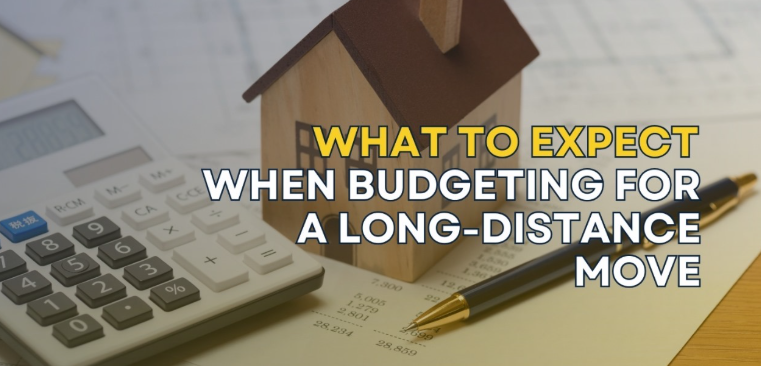
Moving across the country is exciting but it’s no secret that it comes with its fair share of challenges. Whether you’re relocating for a new job, heading closer to family or simply ready for a fresh start, one of the biggest questions on your mind is probably, “How much will this move set me back?” Understanding the different expenses involved can make your transition smoother and help you avoid unexpected surprises.
Planning Your Move the Right Way
When you’re preparing for a big move, planning is everything. From the moment you decide to relocate, start creating a checklist. This list should include everything from decluttering your home, booking professional movers, arranging travel and setting up utilities in your new place.
Early planning allows you to spread out the workload and prevents last-minute stress. It also gives you time to compare prices which can make a huge difference in your total budget.
Breaking Down the Main Expenses
A long-distance move involves more than just packing boxes. Here are the main areas where your money will likely go:
- Professional Movers or Rental Trucks – Depending on your choice, this can be the largest chunk of your budget. Hiring professionals saves time and effort, while renting a truck might be cheaper but requires more physical work.
- Packing Supplies – Boxes, tape, bubble wrap and specialty containers add up quickly. Don’t underestimate how much you’ll need.
- Travel Costs – If you’re driving your own car, consider fuel, food and hotel stays along the way. If you’re flying, add in airfare and possibly shipping your car.
- Storage Fees – Sometimes your new home isn’t ready right away. In that case, you may need short-term storage which comes with additional monthly charges.
- Insurance – Protecting your belongings during such a long trip is essential. Insurance adds peace of mind but also adds to the total bill.
Factors That Affect the Price
No two moves are the same which means your costs will depend on several factors:
- Distance – Naturally, the farther you go, the more you’ll pay.
- Size of Your Home – A studio apartment costs much less to move than a four-bedroom house.
- Time of Year – Summer is peak moving season and prices are usually higher due to demand.
- Extra Services – If you need help with packing, unpacking or moving bulky items like a piano, the price will rise.
The Hidden Costs People Forget
When thinking about moving expenses, many people focus only on the obvious parts, like movers or truck rentals. But there are often hidden costs that sneak up on you:
- Utility deposits at your new home
- Pet transportation or boarding
- Replacing household items that didn’t survive the move
- Meals on the road while traveling
Being prepared for these smaller expenses keeps your budget realistic.
Hiring Professionals vs. Doing It Yourself
A major decision is whether to hire a moving company or handle the move yourself. Each option has pros and cons.
- DIY Move – You save money on labor but it requires renting a truck, heavy lifting and hours of work. It’s manageable for smaller households but overwhelming for larger ones.
- Professional Movers – They handle everything from loading to driving the truck cross-country. This saves stress but comes at a higher price. When researching, you’ll see that cross country movers cost varies widely depending on the company and services offered.
Tips to Save Money
Even though moving can be expensive, there are ways to bring costs down:
- Declutter Before Moving – The less you move, the cheaper it gets. Sell, donate or recycle items you don’t need.
- Get Multiple Quotes – Compare at least three companies before making a decision.
- Move Off-Season – If possible, plan your move in fall or winter when demand is lower.
- Use Free Supplies – Grocery and retail stores often give away free boxes.
- Ship Smartly – For certain items, shipping them separately can be cheaper than loading them with movers.
Ending
Moving across the country is a big step, both emotionally and financially. While it can feel overwhelming at first, breaking down the expenses into smaller categories makes the process easier to manage. With smart planning, budgeting and a little research, you can avoid surprises and stay in control of your finances.
At the end of the day, remember that investing in a smooth move is really an investment in peace of mind. Whether you decide to go the DIY route or hire professionals, understanding what goes into the overall cross country movers cost will help you make the best choice for your situation.
